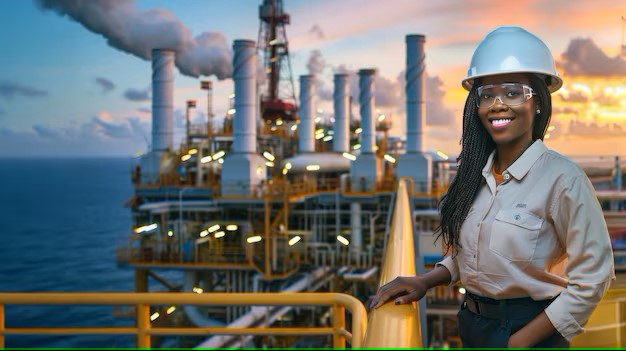E&I Engineering for Oil and Gas Facilities 24th – 28th March, 2025
- Description
- Reviews
Course Content:
This course aims to provide participants with a comprehensive understanding of Electrical and Instrumentation (E&I) engineering in the context of oil and gas facilities. It focuses on the design, installation, operation, and maintenance of electrical and instrumentation systems crucial to the safe and efficient operation of upstream, midstream, and downstream facilities. Key objectives include:
Course Objectives:
1. Understanding E&I Systems in Oil and Gas:
- To understand the role of electrical and instrumentation systems in oil and gas facilities.
- To explore how these systems ensure safety, control, and efficient operations in various segments of the oil and gas industry.
2. Design and Specification of Electrical Systems:
- To learn the principles behind the design and specification of electrical systems such as power distribution, lighting, and motor control systems in oil and gas facilities.
3. Instrumentation Design and Control Systems:
- To develop knowledge of process control systems, instrumentation, and sensors used in monitoring and controlling oil and gas processes.
4. Hazardous Area Classification and Protection:
- To understand the classification of hazardous areas in oil and gas facilities and the design of electrical and instrumentation systems to ensure safety in these areas.
5. System Integration and Commissioning:
- To explore the integration of electrical, instrumentation, and control systems in oil and gas facilities.
- To understand the commissioning and start-up processes for E&I systems.
6. Maintenance, Troubleshooting, and Reliability:
- To gain knowledge of maintaining, troubleshooting, and improving the reliability of electrical and instrumentation systems in oil and gas facilities.
Course Contents:
Module 1: Introduction to E&I Engineering in Oil and Gas
- Role of Electrical and Instrumentation engineering in oil and gas facilities.
- Overview of electrical systems, instrumentation, and control in upstream, midstream, and downstream operations.
- Key safety and regulatory standards (IEC, ATEX, NEC, API).
Module 2: Electrical Systems Design
- Principles of electrical power distribution in oil and gas facilities.
- Design of power generation, transmission, and distribution systems.
- Motor control systems (MCCs), transformers, and switchgear.
- Lightning protection and grounding systems.
- Emergency and backup power systems (UPS, generators).
Module 3: Instrumentation and Process Control Systems
- Types of instrumentation: pressure, temperature, flow, level, and analytical instruments.
- Process control systems: Distributed Control Systems (DCS), Programmable Logic Controllers (PLC), and Supervisory Control and Data Acquisition (SCADA).
- Control loops and their application in process automation.
- Instrumentation calibration, maintenance, and troubleshooting.
Module 4: Hazardous Area Classification and Explosion Protection
- Classification of hazardous areas (Zone 0, 1, 2 for gases and Zone 20, 21, 22 for dusts).
- Explosion protection methods: intrinsic safety (IS), flameproof enclosures, and increased safety systems.
- Selection of electrical equipment for hazardous locations.
- Standards and regulations for hazardous area design (IECEx, ATEX).
Module 5: Electrical and Instrumentation Systems Integration
- Integration of electrical power, instrumentation, and control systems in oil and gas facilities.
- Communication protocols for system integration (HART, Profibus, Modbus).
- Safety-integrated systems (SIS) for shutdown and emergency scenarios.
- Instrumentation loop design, signal transmission, and data acquisition.
Module 6: Control Room and Automation Systems
- Design and layout of control rooms in oil and gas facilities.
- Automation of monitoring and control systems for efficient operations.
- Human-machine interface (HMI) design and its role in process control.
- Control system architecture (DCS, PLCs, SCADA).
Module 7: Installation and Commissioning of E&I Systems
- Best practices for the installation of electrical and instrumentation systems.
- Cable sizing, routing, and installation standards.
- Commissioning procedures for E&I systems in oil and gas facilities.
- Start-up and troubleshooting techniques.
Module 8: Maintenance, Reliability, and Troubleshooting
- Preventive and predictive maintenance for electrical and instrumentation systems.
- Fault finding and troubleshooting techniques for electrical and instrumentation systems.
- Reliability-centered maintenance (RCM) in oil and gas operations.
- Spare parts management and system uptime optimization.
Module 9: Case Studies and Industry Applications
- Real-world examples of electrical and instrumentation system design, installation, and operation in oil and gas facilities.
- Lessons learned from operational failures and successes.
- Future trends in E&I engineering for oil and gas (e.g., automation, IoT, digital twin technology).
Target Audience
- Electrical and instrumentation engineers working in the oil and gas industry.
- Project managers, operations managers, and technicians involved in the installation, maintenance, and operation of E&I systems.
- Professionals transitioning into the oil and gas sector from other engineering disciplines.
- Regulatory and safety officers overseeing E&I system compliance in oil and gas facilities.
Learning Outcomes
- By the end of the course, participants will be able to:
- Design, specify, and implement electrical and instrumentation systems for oil and gas facilities.
- Understand and apply safety regulations, particularly in hazardous areas.
- Integrate electrical, instrumentation, and control systems to ensure safe and efficient operation.
- Effectively maintain and troubleshoot electrical and instrumentation systems to optimize reliability and performance.
- Apply best practices in the commissioning and start-up of E&I systems in oil and gas facilities.





